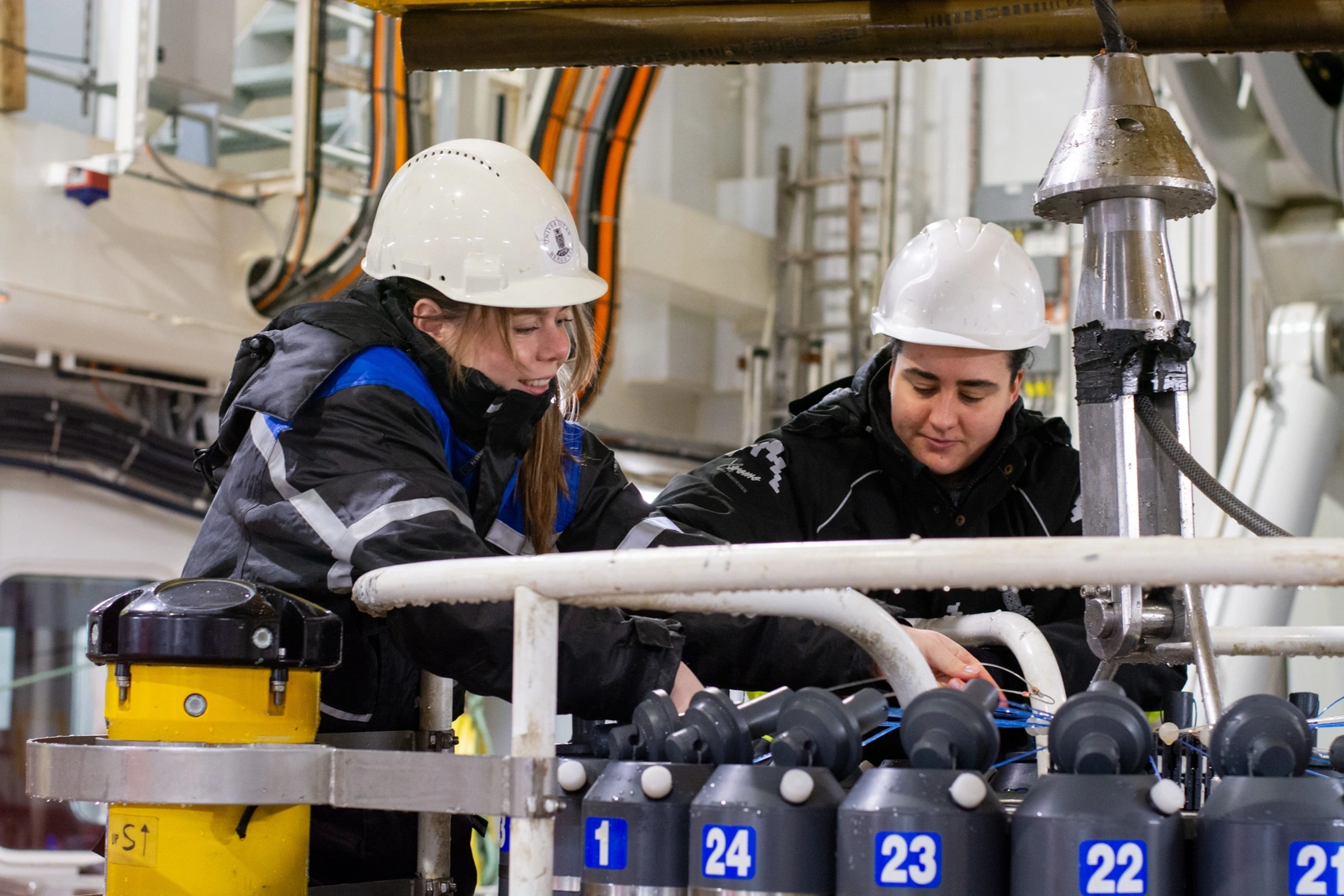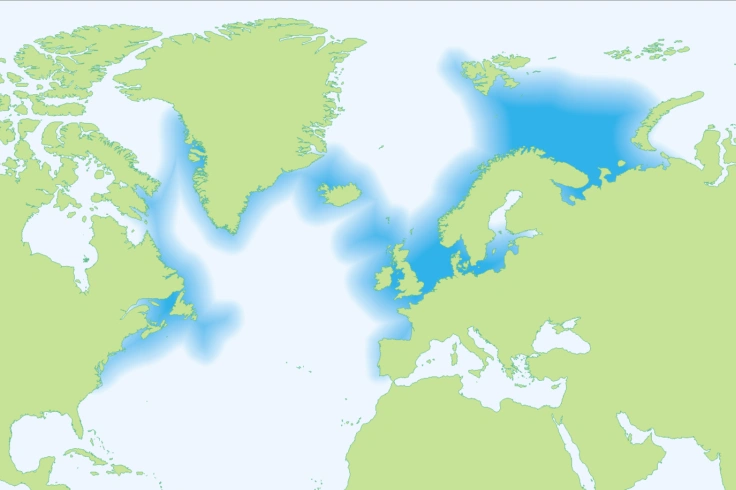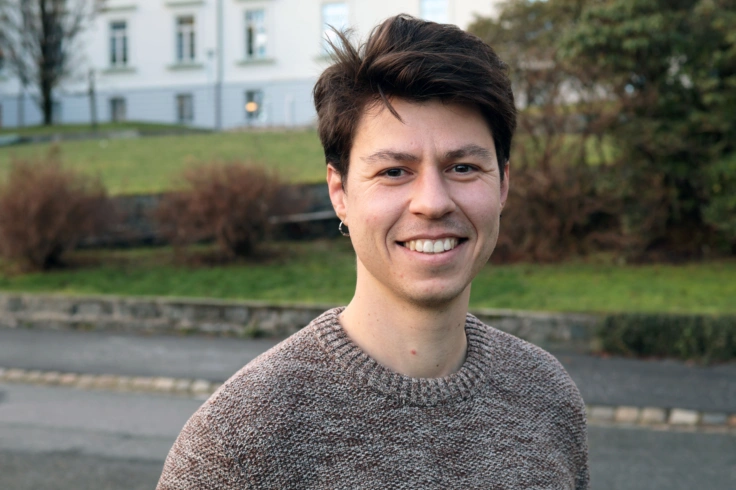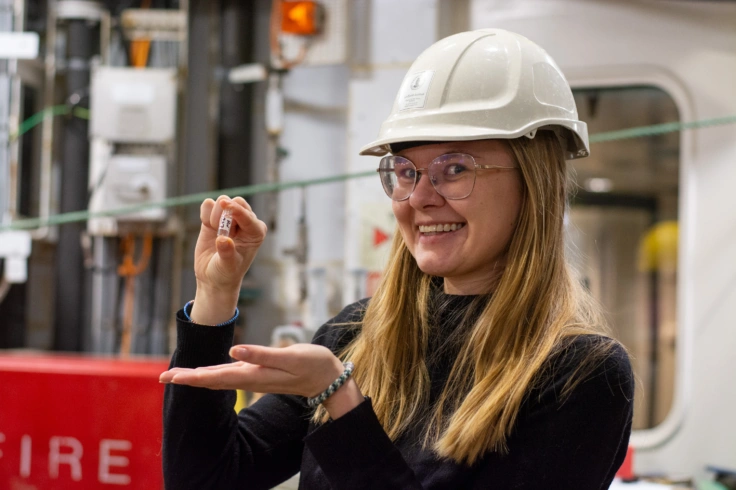
How can we find out what happens in water that lies underwater?
Read moreFind an Expert
Our researchers are employed either at NORCE, UiB, the Nansen Center or the Institute of Marine Research. The researchers work together across various scientific disciplines. Find researchers with backgrounds in meteorology, oceanography, geology, geophysics, biology and mathematics, among others.
Projects
Researchers at Bjerknes are involved in several projects, both nationally and internationally. The projects are owned by the partner institutions, with the exception of our strategic projects.
Publications
Researchers at the Bjerknes Center publish more than 200 scientific articles each year.
Calendar
Se alle
15.12.25
Disputas: Karl Guy Romeo Purcell: "Reconstructions of southern South Africa hydroclimate during the last glacial cycle, and potential linkages to human behavioural developme
Karl Guy Romeo Purcell disputerer 15.12.2025 for ph.d.-graden ved Universitetet i Bergen med avhandlingen "Reconstructions of southern South Africa hydroclimate during the last glacial cycle, and potential linkages to human behavioural development". Avdekker tidlige menneskers eldgamle miljøer | Nye doktorgrader | UiB

15.12.25
BCCR Monday Seminar: "Vertical carbon export during an under-ice phytoplankton bloom in the Chukchi Sea".
The last BCCR Monday Seminar of the year will be given next Monday (December 15th) by Robert Pickart from the Woods Hole Oceanographic Institution. He will present his work on "Vertical carbon export during an under-ice phytoplankton bloom in the Chukchi Sea". Abstract In order to quantify pelagic-benthic coupling on high-latitude shelves it is imperative to identify the different physical mechanisms by which phytoplankton are exported to the sediments. In June-July 2023, a field program documented the evolution of an under-ice phytoplankton bloom on the northeast Chukchi shelf. Here we use in-situ data from the cruise, a simple numerical model, historical water column data, and ocean reanalysis fields to characterize the physical setting and describe the dynamically-driven vertical export of chlorophyll associated with the bloom.

07.01.26
Bjerknes Getaway at Voss 7-9 January 2026
The Bjerknes Getaway 2026 wil take place at Scandic Voss. More info will come in due time.
Our Research Groups
Cross-Cutting Activities
Learn About Climate Science
Se alleNews
Se alle
09.12.25
The cod has followed the thermometer
In recent decades the cod stock in the Barents Sea has gone up and down with the ocean temperature. Future development depends on more than the water.

09.12.25
Looking at freshwater in a new way
Freshwater is quietly reshaping the oceans — and with it, the climate. A new study has looked at how rain, river runoff, and melting sea ice spread through the world’s oceans, revealing differences between the Arctic and Antarctic.

25.11.25
All the water we cannot see
Only a fraction of the ocean lies at the surface. How can we find out what happens in water that lies underwater?





